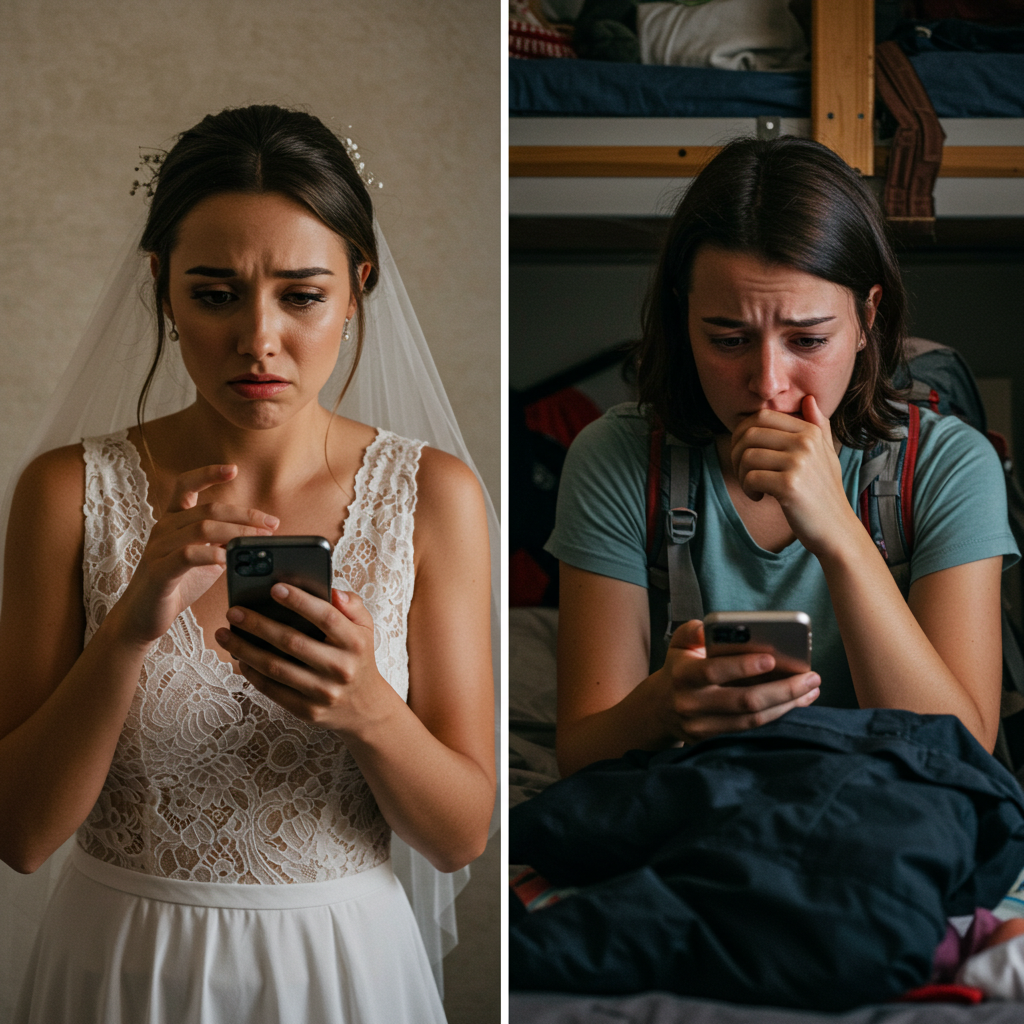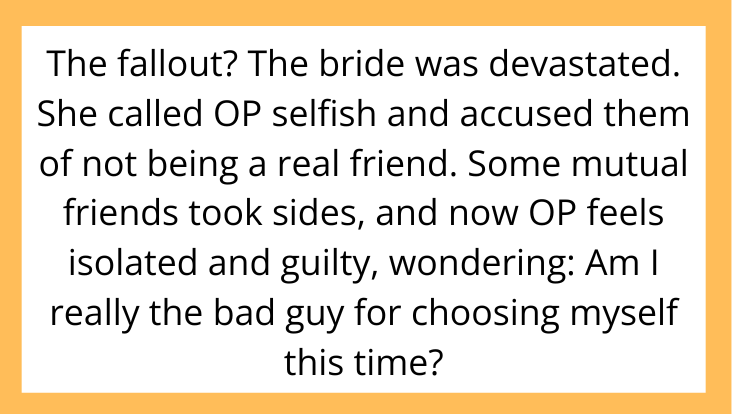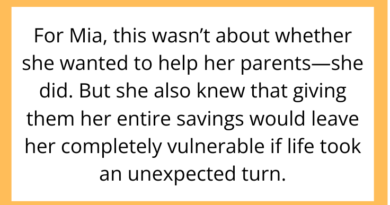AITAH for Choosing to Travel Solo Instead of Attending My Best Friend’s Wedding?
Weddings are often seen as once-in-a-lifetime events, but what happens when someone chooses personal fulfillment over lifelong friendship? A post recently shared on r/AITAH asked this very question, igniting a storm of reactions: was the original poster wrong for skipping their best friend’s wedding to go on a long-planned solo trip?
This dilemma isn’t just about a missed RSVP—it’s about values, priorities, and whether friendship has to come before personal goals.
The Situation: A Clash Between Commitments

The original poster (OP) explained that they’d booked a three-week solo backpacking trip across Europe nearly a year in advance. It was something they had dreamed of for years and finally had the savings, time off, and courage to do it.
Six months after booking the trip, their best friend announced her wedding—set for the exact middle weekend of OP’s travels. The friend assumed OP would cancel or adjust their plans. But OP politely declined the invitation, citing the long-term effort, cost, and emotional investment already tied into the trip.
The fallout? The bride was devastated. She called OP selfish and accused them of not being a real friend. Some mutual friends took sides, and now OP feels isolated and guilty, wondering: Am I really the bad guy for choosing myself this time?
Why Personal Dreams Often Collide with Social Expectations

This situation highlights a tension many of us feel: the pressure to show up for others even when it compromises our own goals. Here’s why it struck a nerve:
-
Cultural weight of weddings: Weddings are deeply emotional and symbolic. Missing one—especially as a close friend—can be viewed as betrayal.
-
The “once-in-a-lifetime” myth: Solo trips, especially long-term or international ones, aren’t easy to plan or repeat.
-
Changing values: Modern friendships often center around emotional availability rather than constant physical presence.
OP’s choice reflects a growing conversation about whether choosing yourself inherently means hurting others—or whether there’s room for both.
The Friendship Fallout: When Boundaries Are Mistaken for Betrayal

OP didn’t say they didn’t care about the wedding. They just said they couldn’t be there. And that’s a subtle but important difference.
It raises key questions:
-
Is love measured by physical presence or emotional support?
-
Can one decision undo years of loyalty and friendship?
-
Is it fair to expect someone to sacrifice something they’ve dreamed of?
Many Redditors pointed out that friendship should include understanding. If a one-time absence outweighs years of closeness, was the friendship truly mutual to begin with?
Balancing Friendship and Self-Priority

If you’ve ever faced a similar situation, here are some ways to navigate it:
-
Communicate early and honestly: Let your friend know the moment a conflict arises.
-
Acknowledge the significance: Express that you understand how meaningful the event is.
-
Find alternative ways to show support: Plan a special pre-wedding outing, contribute to the wedding in a meaningful way, or send a heartfelt message to be read on the day.
-
Be ready for mixed reactions: Not everyone will understand, and that’s okay. Your responsibility is to yourself—not to please everyone.
Reddit’s Verdict: Split Down the Aisle

As with most AITAH stories, Reddit was divided. Some supported OP, praising them for honoring their dreams and setting healthy boundaries. Others felt that a best friend’s wedding warranted a change of plans, no matter how inconvenient.
But one thing most agreed on? How you communicate matters just as much as what you decide.
Final Thoughts: Are You a Bad Friend for Choosing Yourself?

Choosing to travel instead of attending a wedding doesn’t make you inherently selfish—it makes you someone with a life, goals, and limitations. In healthy relationships, there’s space for both love and autonomy.
And sometimes, choosing yourself is the very act of courage that leads to deeper self-respect—and to friendships that honor that growth.



